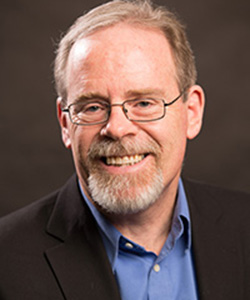The Wm. Collins Kohler Foundation has committed $3 million to the University of Wisconsin-Milwaukee to create an endowed professorship known as the Wm. Collins Kohler Chair in Systems Change & Peacebuilding.
Timothy Ehlinger, an associate professor in the College of Nursing and director of the newly created Institute for Systems Change and Peacebuilding, has been named the inaugural holder of the professorship. This position is housed in UW-Milwaukee’s Partners for Health, comprised of the College of Health Sciences, College of Nursing, Joseph J. Zilber School of Public Health and the Helen Bader School of Social Welfare.

“I deeply appreciate the Wm. Collins Kohler Foundation’s commitment to teaching our students to solve complex problems both close to home and abroad,” UWM Chancellor Mark Mone said. “Professorships are critical to UWM because they allow us to attract and retain high quality, well-respected faculty like Tim Ehlinger. As the first Wm. Collins Kohler Chair in Systems Change & Peacebuilding, Tim embodies the Wm. Collins Kohler Foundation’s vision for progressive change in our world. This is a wonderfully generous and powerful gift.”
The Wm. Collins Kohler Foundation, formerly known as the John M. Kohler Foundation, has supported peace studies at UWM since 2007, giving a total of $4.7 million during that time. In 2011, it helped establish the Master of Sustainable Peacebuilding Program, with Ehlinger as the founding director. This program offers a systems-thinking approach to dealing with complexity, enabling students to understand and navigate pressing global problems, such as climate change, poverty and health disparities. Through holistic, interdisciplinary, community-based processes, students build critical leadership skills in facilitation, conflict transformation and evaluation.
“Our board created this chair in memory of my brother Collins and his intellect, kindness and passion for peace,” Julilly Kohler said. “By carrying on his giving and supporting the study and analysis of the complex systems in our lives and the world, we may better understand them and make the wise choices and interventions needed for a fairer, more balanced world that helps the underdog and can make peace sustainable.”
The gift also provides unrestricted support for the Master of Sustainable Peacebuilding Program, which may include scholarships, staff support and the development of partnerships between the program and regional, national and global community projects.
“I am both honored and humbled to be named the first Wm. Collins Kohler Chair in Systems Change & Peacebuilding,” Ehlinger said. “I have seen firsthand the powerful impact on our students and their ability to effect change in Wisconsin and around the world, made possible by the generosity of the Wm. Collins Kohler Foundation. As director of the institute, I look forward to working with community and university partners to extend this work, thanks to this generous professorship and the creation of this institute.”
The primary goal of the Institute for Systems Change and Peacebuilding is to cultivate the deep and evolving dialogue among diverse community members, university faculty, students and alumni, which supports the relationships required to engage in the difficult conversations necessary to address the issues impacting the health and peace of our communities.
“I am excited about this gift because I’ve seen the impact the Master of Sustainable Peacebuilding Program has had on so many projects,” said Kim Litwack, dean of UWM’s College of Nursing. “This generous gift from the Wm. Collins Kohler Foundation is an investment in our students as changemakers. By creating this professorship, the foundation is ensuring that this program will continue to make powerful changes, from keeping babies healthy in Milwaukee to promoting peace in communities in Kenya. I am so pleased that the memory of Wm. Collins Kohler will live on through this professorship and all it will accomplish.”
For more information, contact Kari Pink, 414-229-7413, pinkkj@uwm.edu